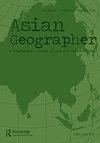2015年尼泊尔地震的政治经济学:一些批判性反思
IF 2.2
Q2 GEOGRAPHY
引用次数: 26
摘要
2015年4月25日,尼泊尔中部发生7.6级大地震,5月12日发生6.8级余震。地震造成约9000人死亡,约2.4万人受伤,受灾人口占尼泊尔总人口(2800万)的三分之一。尽管国际社会承诺提供巨额资金(44亿美元),但重建工作未能按时进行。本文以参与重建和发展的方法作为理论框架,以反思性作为方法工具,认为重建的延迟是由于尼泊尔政府(GON)以及国际社会(主要是捐助者)无法鼓励当地参与造成的。国际社会认捐的贷款数额增加了尼泊尔的债务存量,而不是真正帮助那些受灾害影响的人。这篇论文的结论是,现代主义自上而下的发展模式——政府和捐助者都认为这是理所当然的——为理解尼泊尔的背景现实设置了障碍。如果不加强地方社区的能力,就不可能实现可持续的重建和发展。本文章由计算机程序翻译,如有差异,请以英文原文为准。
The political economy of 2015 Nepal earthquake: some critical reflections
ABSTRACT A massive earthquake of 7.6 magnitudes on 25 April 2015 and a major aftershock of 6.8 magnitudes on 12 May 2015 hit central Nepal. The earthquake took the lives of about 9000 people, injured about 24,000 and affected one-third of Nepal’s total population (28 million). Despite a huge amount of money (US$ 4.4 billion) pledged by the international community, reconstruction works could not take place on time. Using participatory approach to reconstruction and development as a theoretical framework and reflexivity as a methodological tool, this paper argues that the delay in reconstruction was caused by the inability of the Government of Nepal (GON) as well as the international community, mainly donors, to encourage local participation. The amount of loan pledged by the international community has increased Nepal’s debt stock rather than really helping those who are affected by the disaster. The paper concludes that the modernist top-down model of development – that both government and donors take for granted – has created roadblocks towards understanding Nepal’s contextual realities. Sustainable reconstruction and development cannot be achieved without strengthening the capability of local communities.
求助全文
通过发布文献求助,成功后即可免费获取论文全文。
去求助
来源期刊

Asian Geographer
GEOGRAPHY-
CiteScore
3.30
自引率
0.00%
发文量
7
期刊介绍:
Asian Geographer disseminates knowledge about geographical problems and issues focusing on Asia and the Pacific Rim. Papers dealing with other regions should have a linkage to Asia and the Pacific Rim. Original and timely articles dealing with any field of physical or human geographical inquiries and methodologies will be considered for publication. We welcome, for example, submissions on people-environment interactions, urban and regional development, transport and large infrastructure, migration, natural disasters and their management, environment and energy issues. While the focus of the journal is placed on original research articles, review papers as well as viewpoints and research notes under the category of “Asian Geography in Brief” are also considered. Review papers should critically and constructively analyse the current state of understanding on geographical and planning topics in Asia. The ‘Asian Geography in Brief’ section welcomes submissions of applied geographical and planning research about Asia. The section aims to showcase (1) the diverse geography and planning of Asia; and (2) the diverse geographical and planning research about Asia. The journal will also publish special issues on particular themes or areas. Book reviews can be included from time to time.
 求助内容:
求助内容: 应助结果提醒方式:
应助结果提醒方式:


